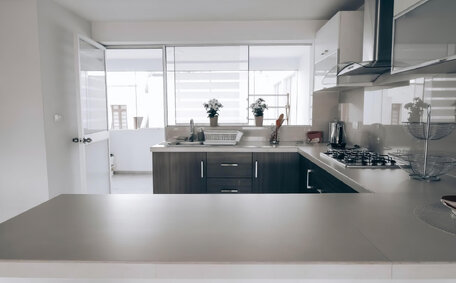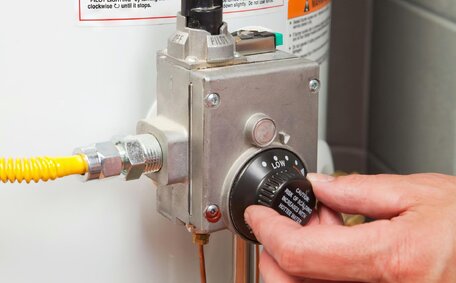Introduction to Tenant Rights Regarding Pipe Relining
As a tenant responsible for certain maintenance tasks, you have important rights when it comes to pipe relining in your rental property. While routine maintenance like pipe relining is generally the landlord’s responsibility, particularly when determining who is responsible for blocked drains resolution, this can get complex depending on the specifics of your situation.
This article gives you the essential insights you need know about pipe relining and plumbing services as a tenant. We’ll cover key questions related to pipe relining Sydney residents often ask like:
- Is my landlord required to inform me before relining pipes?
- Who pays for pipe relining costs?
- What are my responsibilities as a tenant?
- What should I do if there’s an emergency like a burst pipe?
Having a clear understanding of your rights and knowing when to contact the landlord soon, before maintenance team arrives, regarding your pipes upfront is crucial. Any damage to pipes can escalate quickly, so being informed on the proper protocols will ensure any maintenance or repairs are followed up landlord-assessed and carried out smoothly with minimal disruption to you.
We always strive to empower tenants by clearly defining the typical agreements, expectations, and procedures regarding pipe maintenance, providing clarity and peace of mind. This knowledge provided peace of mind in the way we approach discussions with landlords or real estate agents when issues with your plumbing arise.
Landlord vs. Tenant Responsibilities for Pipe Maintenance
When it comes to pipe maintenance in rental properties, it’s crucial for the landlord tenant relationship to be clear on how responsibilities are divided:
Landlord Responsibilities
- Performing routine maintenance on sewer pipes, potentially involving a drain camera, including new pipe installation and traditional pipe replacement, for issues due to regular wear and tear
- Arranging professional drain clearing, perhaps using a highpressure water jet, utilising modern pipe relining solutions, or even inserting a completely new pipe inside the old one if it’s essential
- Covering all costs associated with pipe maintenance and prompt completion of pipe work
- Providing proper notice to ensure tenants are aware before entering premises to get repair replacement work done on the plumbing system
Tenant Responsibilities
- Avoiding negligent actions that could cause blocked drain materials to go down drain, resulting in a blocked sewer, such as improperly disposing of fats or grease
- When tenant discovers leakages, pipe damage or potential issues where blocked drains may present, they must notify landlord or agent immediately
- Ensuring reasonable access for tradespeople to enter and tackle issues like fixing a blocked drain your rental may encounter
- Providing compensation for pipe repair when damage caused by the tenant is established
Having a mutual understanding underpinned by your tenancy agreement of these responsibilities from the start prevents grey areas. A tenant can also review their tenancy agreement and local laws to find out about their rights regarding plumbing maintenance throughout your tenancy.
Identifying Urgent vs. Non-Urgent Pipe Issues
As a tenant, it’s crucial to understand the difference between urgent and non-urgent pipe issues so you know when to take action. Here’s a breakdown:
Urgent Pipe Issues
Urgent issues that can cause serious problems require immediate attention to prevent further damage or disruption. These may include:
- Broken pipes causing severe water leakage
- Blocked drain lines flooding internal areas
- Gas leaks from damaged pipes which may trigger your smoke alarm
- Substantial blockages, often those caused by a single tree root or intrusive tree roots, leading to a total failure of wastewater drainage
For urgent repair issues, tenants should attempt to stem water flow, evacuate if necessary, and contact both the landlord/agent and a local plumber or emergency service straight away as stipulated in tenancy agreements and local rules about repairs.
Non-Urgent Pipe Issues
Non-urgent issues still require attention but are less severe or progress slowly over time. These may include:
- Occasional gurgling sounds can indicate partially blocked drains can slowly become a significant issue
- Slow wastewater drainage without backups
- Minor dripping from joints
For these concerns, submit a written notice to raise up the issue with your landlord/agent concerning the necessary services, in line with the tenancies act, related to your plumbing system. Most tenancy agreements mandate the landlord to conduct repairs, considering factors such as greater than pvc pipe life expectancy, which we’d typically evaluate for normal wear and tear within a set window, usually spanning 7 to 14 business days.
Maintain an awareness of the state of your drains and the entire rental property in the tenant landlord relationship and report pipe issues promptly to the property owner or landlord agent to prevent escalation. Knowing the urgency level will ensure the optimal response.
When Tenants Can Arrange Emergency Pipe Repairs
As a tenant, you have the right to arrange emergency plumbing repairs without seeking prior permission in certain urgent situations, such as:
- A burst water pipe causing severe flooding
- A complete blockage requiring immediate sewer repair as it reverses wastewater flow into your domestic comforts like sinks and bathtubs
- A gas leak from damaged gas pipes
- Any issue presenting immediate health hazards if left unattended
However, when dealing with a blocked drain in your property, I would highly recommend there are important steps to follow first before calling emergency repairs yourself:
- Attempt to contain the problem if safe e.g. turning off main valves
- Notify the landlord/agent immediately and suggest they contact a blocked drain specialist for the next time an issue arises
- Clearly convey the urgent nature of the issue
- Allow reasonable time for the landlord to initiate repairs
You typically have the right to arrange emergency repairs if the landlord cannot respond promptly, and this is where knowing a reliable plumbing service can help. Check regulations, but 12-24 hours is often cited.
For nonurgent repairs, where your sewer can slowly degrade, you generally cannot initiate work without landlord approval. But keep submitting written enquiries to the head office about unresolved problems.
Regarding costs for emergency repairs arranged by tenants, local tenancy laws ultimately decide who pays. There are a few common scenarios:
- Landlord can cover full costs or may not have to pay any costs if at fault for the issue
- Split costs if not landlord’s fault e.g. tenant damage caused issue
- Reimbursed by landlord if their non-response forced tenant to act
To best understand your rights, carefully review emergency repair protocols in your specific tenancy agreement and rental jurisdiction.
Scenarios Where Tenants May Be Liable for Pipe Damage
As a tenant, you may be liable for pipe damage in certain scenarios, including:
Negligent Behaviour
If your actions can lead directly to a damaged pipe, you may need to compensate for repairs. Examples include:
- Indiscriminate disposal of fats, oils, or corrosive substances down the sink can culminate in a blocked sewer drain
- Disposing solid items like wet wipes down toilets leading to obstructions
- Overloading the wastewater system by using multiple high-flow appliances simultaneously
Intentional Damage
Deliberately tampering with or damaging rental property pipes makes tenants liable for repairs like:
- Removing or modifying fixed cast iron pipes without approval
- Damaging pipe infrastructure to steal copper materials
Failure to Report Existing Issues
When tenants don’t report problems for extended periods, worsening damage can occur. Tenants may then share repair costs for issues like:
- Concealing leaks until major flooding events
- Letting minor drainage blockages eventually become completely obstructed
Always notify landlord in writing as soon as you notice potential pipe problems to get the job done correctly. This ensures you promptly follow up after the maintenance crew cleaned up to verify that repairs done meet the necessary standards and define responsibility should damages escalate.
If your actions lead directly to pipe issues, you may need to compensate repairi>
Disposing solid items like wet wipes down toilets leading to obstructionsAddressing Grey Areas Like Stormwater Pipes
Storm water pipes, occasionally requiring a pipe inside old systems to be replaced, can present a grey area when it comes to tenant rights and responsibilities. Unlike household wastewater pipes which are usually the landlord responsible, stormwater pipes manage stormwater runoff and are often considered part of local council infrastructure.
This can mean ambiguity over who is liable for stormwater pipe issues like blockages, breaks and leaks leading to property flooding. The complexity arises when trying to determine who responsible for blocked issues, as problems are typically only exposed when extreme weather events occur.
As a tenant, take these steps in stormwater pipe scenarios:
- Check pipes carefully after heavy rain or storms, noting any apparent faults like pooling water
- Formally notify the landlord about suspected issues in writing with date/time stamped photos
- Determining who responsible, be it the council or private property owner, for the pipes in question
- Get written confirmation from the landlord if they accept liability for repairs
- If landlord refuses, contact your local council to determine accountability
Many tenant rights groups argue for clearer agreements on services, such as when plumbers came out for relining Sydney stormwater pipes, as part of rental property upkeep. But legally this remains a grey area, unless explicitly stated in tenancy contracts.
As storm intensities increase amid climate change, expect his team of experts to address stormwater pipe-related disputes more frequently. we very professional tenants advocate for clear stipulations in tenancy agreements regarding stormwater pipe liability, reducing misunderstandings and preventing potential plumbing issues.
Document all concerns with stormwater pipes and persistently engage with property owners or your local council until repairs conclude, leaving you very happy with the resolution, or seek advice from tenancy advocates if issues persist.
Tenant Rights to Habitable Living Conditions
As a tenant, you have a right to habitable living conditions within your rental property. This is outlined in most tenancy laws and agreements.
When it comes to plumbing, this means your landlord is obligated to provide and properly maintain essential services like:
- Hot and cold running water
- Proper wastewater drainage via functioning pipes and drains
- Adequate water pressure in good working order for regular household usage
- Gas supply if gas appliances are installed
If any plumbing issue within the rental impacts your access to hot water, sewer drainage or other basic needs, this equates to uninhabitable living conditions.
As a tenant, our customers have the right to formally request urgent repairs by notifying their property owner in writing. Maintain detailed records as solid evidence, which was very crucial.
If your landlord does not remedy hot water system failures, blocked drains, leaks or pressure problems within an acceptable timeframe such as 24-48 hours, they are likely breaching habitability regulations.
In these cases, it should take no more than the specified emergency timeframe before you are generally entitled to arrange repairs through a reputable plumbing company yourself and deduct costs from rent. Or get your ability to exit your lease early without penalties confirmed.
Check your local residential tenancies laws and agreement for the exact protocols to follow. An inadequate response from landlords concerning vital plumbing repairs equates to liveability concerns, which is why we advise our customers to uphold their right to basic habitable conditions.
As a tenant, you have a right to habitable living conditions within your rental property.
When it comes to plumbing, king Compensation for Unresolved Pipe Issues
As a tenant, you have options if your landlord fails to address critical pipe issues in your renta. Take photos detailing the problems. Ensure urgent issues like sewage backups or loss of hot water are conveyed immediately to the landlord/agent.
If no action within 24 hours, reach out to organisations integral to your business, like your local tenancy advice line, to understand what measures can apply, ensuring readiness for any future occurrences. This may involve:
- Formally issuing breach notices
- Hiring emergency repairs and deducting costs from rent
- Filing complaints with housing authorities
- Initiating rent withholding or opposing rent increase
- Ultimately terminating your lease or when acknowledging they did great job ensuring repairs or negotiating a rent reduction
For negligence leading to property damage or health/safety impacts, we would diligently gather evidence to pursue compensation via tenancy tribunals. Or if unresolved, file claims in your local small claims court.
Renters have rights - don’t endure substandard living conditions; we highly recommend seeking professional advice if needed. Highly recommended is seeking assistance from tenancy unions or low-cost legal centres when landlords overlook critical plumbing repairs.






